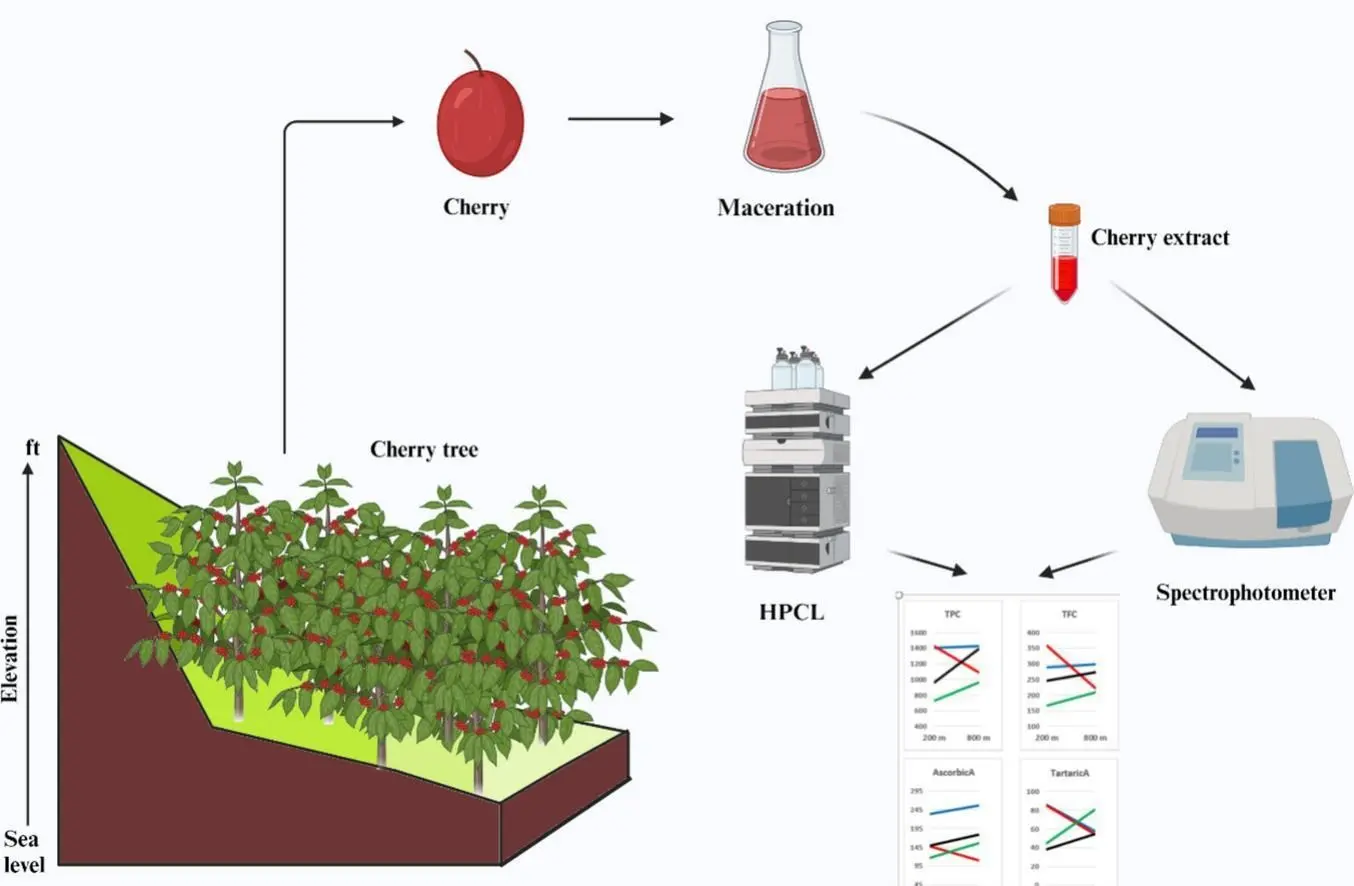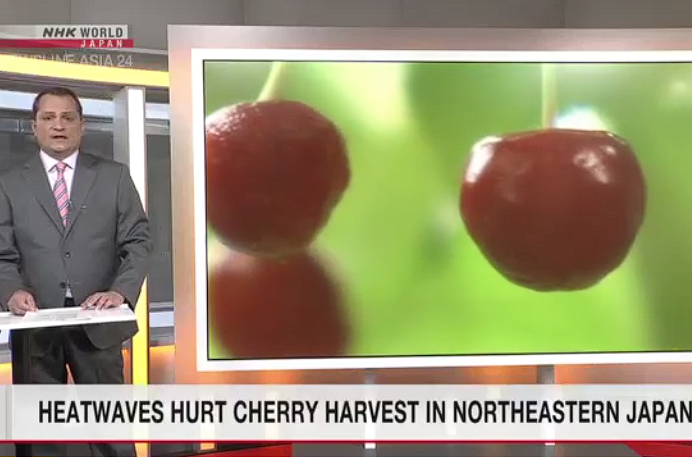Sweet cherries and their nutritional profile
Sweet cherries are highly appreciated by consumers for their rich nutritional profile, which includes bioactive compounds capable of counteracting oxidative stress and contributing to the prevention of chronic diseases such as diabetes, cardiovascular diseases, and neurodegenerative disorders.
However, the biochemical composition of these fruits is strongly influenced by environmental factors. One of these factors is altitude, which affects parameters such as temperature, solar radiation, precipitation, and atmospheric pressure.
A recent study examined four sweet cherry cultivars: "Kordia", "Regina", "Sweetheart", and "0900 Ziraat", grown in Turkey at two different altitudes, 200 and 800 m, over two consecutive years to evaluate the impact of altitude on fruit quality as well as composition and concentration of bioactive compounds.
Impact of altitude on biochemical composition
 Figure 1. Molecular docking is a simulation method that looks at several small molecule conformations inside protein binding sites and utilizes scoring algorithms to determine which conformation is most appropriate for the protein binding location.
Figure 1. Molecular docking is a simulation method that looks at several small molecule conformations inside protein binding sites and utilizes scoring algorithms to determine which conformation is most appropriate for the protein binding location.
The results showed that altitude significantly influences the concentration of organic acids and phenolic compounds, two key components that affect the nutritional and organoleptic properties of cherries.
Malic acid, the main organic acid responsible for the fruit's freshness and tart flavor, increased with altitude, rising from 9039.17 mg/L to 9309.58 mg/L. Similarly, chlorogenic acid, an important phenolic compound with antioxidant properties, also increased, from 64.88 mg/L to 66.99 mg/L.
These variations are associated with greater acidity (lower pH) at higher altitudes, which promotes beneficial phytochemical accumulation and antioxidant activity.
Altitude and cultivar response
The four analyzed cultivars exhibited different responses to altitude. "Kordia" stood out for its high stability and excellent qualitative characteristics, regardless of altitude, whereas "Regina" and "Sweetheart" showed greater sensitivity to environmental variations.
The "0900 Ziraat" cultivar remained stable but had lower levels of bioactive compounds compared to the other varieties. Overall, "Kordia" appears to be the preferred choice for both high and low altitudes.
Therefore, selecting the appropriate cultivar should take into account environmental conditions to achieve high-quality fruit production.
Molecular docking and health implications
In addition to traditional chemical analyses, the study employed molecular docking simulations to evaluate the interaction between the main bioactive compounds in sweet cherries and proteins involved in oxidative processes in the human body.
Chlorogenic acid showed a strong binding affinity with furin, suggesting a potential antioxidant effect that could have beneficial health implications. Malic acid, while also interacting with furin, exhibited a lower binding affinity, indicating a more marginal role compared to chlorogenic acid.
Conclusion: altitude as a strategic factor
The study’s conclusions emphasize that altitude can be leveraged as a strategy to modulate the nutritional profile of sweet cherries, altering their biochemical composition according to market demands and consumer preferences.
Moreover, selecting the most suitable cultivars for specific environmental conditions is a key factor in ensuring high-quality fruit with a high antioxidant content across different cultivation environments.
Source: Mertoğlu, K. (2025). Sweet cherry fruit nutritional profile modulation and molecular docking studies of major compounds. Food Chemistry, 465, 142153. https://doi.org/10.1016/j.foodchem.2024.142153
Image source: Kerem Mertoğlu, 2025; SL Fruit Service
Andrea Giovannini
Università of Bologna
Cherry Times - All rights reserved











